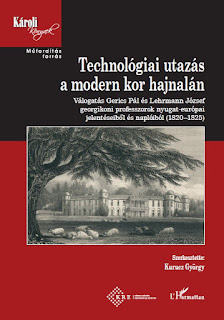The virtual platform HPS.CESEE and CHORUS: Colloquium for the History of Russian Science are proud to present the global book talk "Białowieża Forest: History and Memory". Jawad Daheur (Paris) will join with the authors of "Białowieża Primeval Forest: Nature and Culture in the Nineteenth Century" (Cham 2020) [1], Anastasia Fedotova (St. Petersburg) and Tomasz Samojlik (Białowieża), as well as authors of "Wisent-Wildnis und Welterbe. Geschichte des polnisch-weißrussischen Nationalparks von Bialowieza" (Cologne 2017) [2], Thomas Bohn (Giessen), Aliaksandr Dalhouski (Minsk) and Markus Krzoska (Giessen), to discuss their recently published books, in a discussion moderated by Friedrich Cain (Vienna). It is part of a series of open zoom events aiming to foster the discussion of new books and approaches within the history of science and scholarship (broadly understood) in Central, Eastern and Southeastern Europe.
The meeting is free and open to the public. To receive the link, please register here: http://tiny.cc/hpsceseeBialowieza or write to hps.cesee@gmail.com.
[1] Anastasia Fedotova, Piotr Daszkiewicz, Ian D. Rotherham, Tomasz Samojlik: Białowieża Primeval Forest: Nature and Culture in the Nineteenth Century. Cham: Springer Nature 2020.
[2] Thomas M. Bohn, Aliaksandr Dalhouski, Markus Krzoska: Wisent-Wildnis und Welterbe. Geschichte des polnisch-weißrussischen Nationalparks von Bialowieza. Köln: Böhlau 2017.
Participants:
Thomas Bohn is Professor for Eastern European History at the Justus-Liebig-Universitaet Giessen. Research interests: history of historiography, urban history, superstition and nonkonformism, Belarusian studies. Current research project are "Russian Scholars in the 'Near East': Archaeological Expeditions and Imperial Cultural Politics" (DFG 2019-2021); and "Territorialisation in the Belarusian Soviet Socialist Republic. Shifts of borderlines and measures for area penetration from 1918 to 1941" (DFG 2021-2024).
Jawad Daheur is historian at the Center for Russian, Caucasian and Central European Studies (EHESS, Paris). He works on the relations between human societies and their environment in Central Europe, with a special focus on German-speaking areas and Poland. His current field of research addresses the ecological impacts of large-scale trade in the southern Baltic hinterland during the modern period.
Aliaksandr Dalhouski is a historian at the Historical Workshop in Minsk, and is responsible for the traveling Belarusian-German exhibition “Extermination site Malyj Trostenec. History and Memory” in Belarus. He studied in Minsk and Aachen, and obtained a PhD from the University of Giessen in 2012. His doctoral thesis appeared in 2015 as „Tschernobyl in Belarus. Ökologische Krise und sozialer Kompromiss (1986–1996)“. His research interests include the history of Belarus during World War II and following the Chernobyl disaster, as well as environmental history.
Anastasia Fedotova is a senior researcher at St. Petersburg’s Branch of Institute for the History of Science and Technology of the Russian Academy of Sciences. Her research interests incorporate (1) scientific knowledge in the rationalization of agriculture and forestry, (2) environmental history, (3) history of the life and earth sciences: plant ecology, applied botany, agricultural entomology, forest ecology, and soil science in the 19th and first half of the 20th century.
Markus Krzoska is historian and translator, currently Privatdozent at Justus-Liebig-University of Giessen. His thematic focus is the history of Poland, history of religion, history of historiography and urban history. More recently he has also turned to human-animal studies and the broadly understood cultural studies.
Tomasz Samojlik is researcher at the Mammal Research Institute, Polish Academy of Sciences in Białowieża, where he studies the environmental history of Białowieża Primeval Forest.













